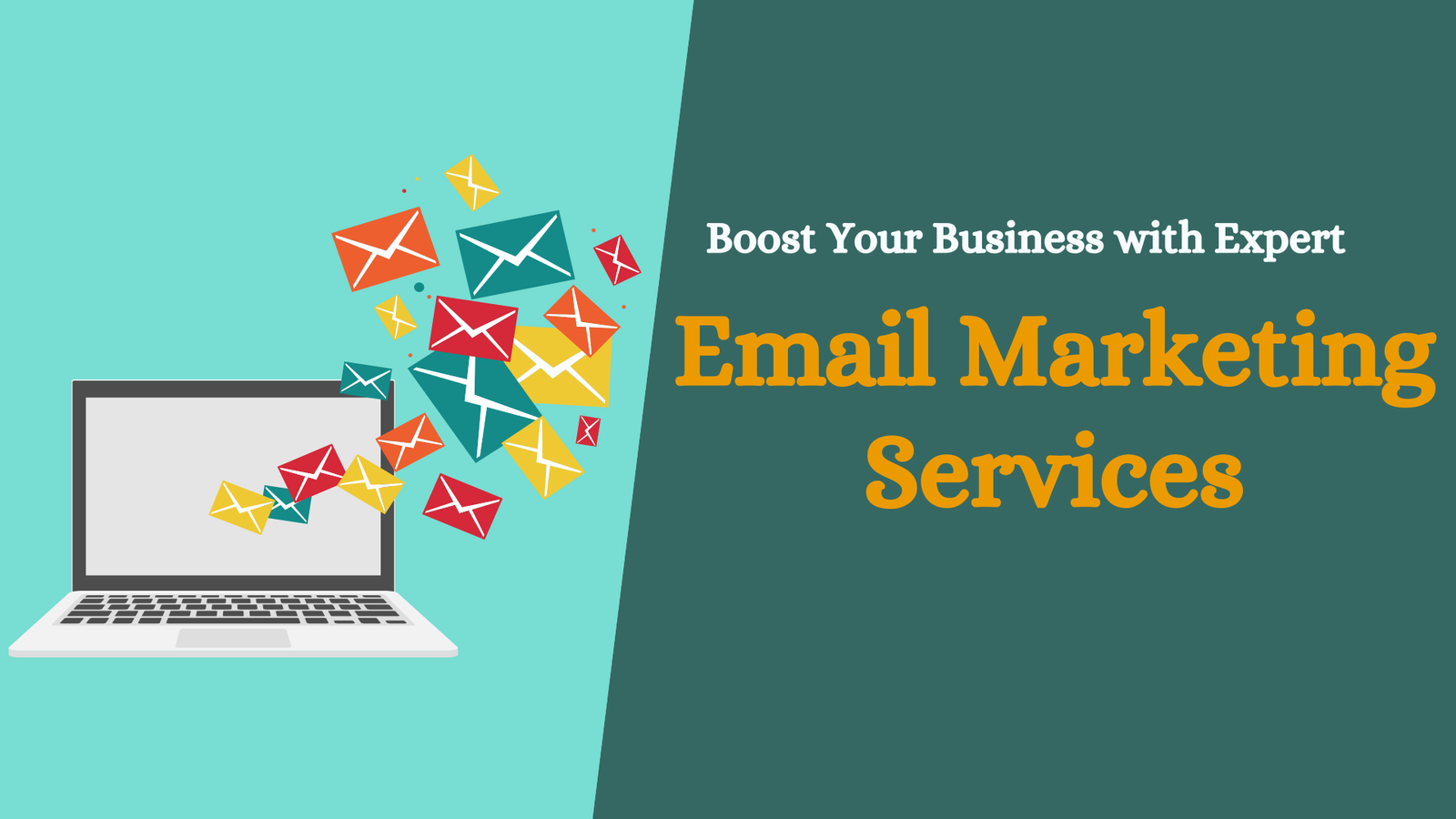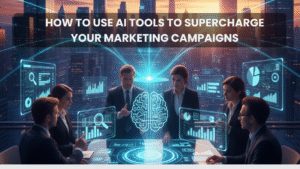Email marketing has become a cornerstone of modern business techniques. It helps businesses to connect with their audience, build relationships, and drive growth. Leveraging email marketing services ensures you get expert assistance to maximize the effectiveness of your campaigns. Partnering with a professional email marketing agency can enhance your strategy, save time, and deliver measurable results.
Email marketing offers an unusual opportunity to reach customers directly. Unlike other marketing channels, it allows for personalization, precise targeting, and measurable outcomes. Businesses of all sizes can benefit from this cost-effective tool, making it an essential component of any marketing plan.
1. What is Email Marketing?
Email marketing involves sending targeted emails to your audience to promote products, share updates, and build brand loyalty. Its purpose is to create a direct line of communication, making it easier for businesses to connect with their customers and address their needs.
Key Features of Email Marketing:
- Personalization: Tailor messages to individual recipients based on their preferences and behaviour.
- Automation: Schedule and send emails automatically, saving time and effort.
- Analytics: Track the performance of your campaigns to make data-driven decisions.
By using email marketing, businesses can:
- Nurture leads and convert them into customers.
- Provide valuable content to keep the audience engaged.
- Strengthen customer relationships over time.
- Generate consistent traffic to their website.
2. Types of Email Marketing
To achieve success, it’s essential to use the correct type of email marketing based on your goals:
Newsletters
Newsletters are an excellent way to keep your audience informed about the latest updates, trends, or news related to your business. They help maintain regular communication and build trust with your subscribers.
Promotional Emails
Promotional emails are designed to drive sales through special offers, discounts, or limited-time promotions. These emails are highly effective during holiday seasons or product launches.
Transactional Emails
Transactional emails include order confirmations, shipping updates, and account notifications. These emails are vital for building trust and ensuring a seamless customer experience.
Re-engagement Emails
Re-engagement emails aim to reconnect with inactive subscribers. They remind users of your value and encourage them to return to your platform or services.
3. Why Email Marketing is Important
Email marketing is a crucial tool for businesses because it:
- Offers direct communication: Reach your customers personally without relying on third-party platforms.
- Delivers a high ROI: Studies show email marketing provides one of the highest returns on investment, making it highly cost-effective.
- Builds brand loyalty: Consistent messaging helps keep your business top-of-mind for your audience.
- Drives traffic and conversions: Well-crafted emails can lead users to your website and encourage them to take action.
- Supports multi-channel strategies: Email marketing complements social media, content marketing, and paid advertising efforts.
4. The Benefits of Email Marketing
Investing in email marketing brings numerous advantages:
1. Increased Customer Engagement
Personalized campaigns resonate better with your audience. By addressing their specific needs and preferences, you can foster stronger connections.
2. Easy Performance Tracking
Email marketing platforms provide detailed analytics, such as open rates, click-through rates, and conversion rates. These insights help you optimize your campaigns for better results.
3. Cost-Effectiveness
Email marketing is budget-friendly compared to traditional advertising methods. It allows you to reach a large audience without incurring significant expenses.
4. Scalability
Email marketing adapts to your needs, whether you’re a small business or a large enterprise. As your business grows, you can scale your efforts accordingly.
5. Strengthened Customer Relationships
Regular communication with your audience keeps them engaged and loyal to your brand. Sharing valuable content reinforces your position as a trusted authority in your industry.
Transform Your Digital Presence
Get personalized strategies and solutions tailored to your business needs.
- Free Initial Consultation
- Custom Solution Planning
- Expert Team Support
5. How to Get Started with Email Marketing?
Starting with email marketing is simple when you follow these steps:
Step 1: Define Your Goals and Audience
Identify what you want to achieve through email marketing. Are you looking to increase sales, build brand awareness, or improve customer retention? Understanding your audience’s needs and preferences is key.
Step 2: Choose the Right Tools
Select a reliable email marketing platform that suits your business needs. Popular options include Mailchimp, Constant Contact, and HubSpot. These tools offer features like automation, analytics, and customizable templates.
Step 3: Create Compelling Content
Focus on engaging designs and clear messaging to capture attention. Use a mix of text, images, and videos to make your emails visually appealing.
Step 4: Build a Quality Email List
Avoid purchasing email lists, which often lead to low engagement and spam complaints. Instead, grow your list organically through sign-up forms, lead magnets, and social media promotions.
Step 5: Test and Optimize
Conduct A/B testing to determine what works best for your audience. Experiment with subject lines, email layouts, and call-to-action buttons.
6. Key Features to Look for in Email Marketing Services
When selecting email marketing services, ensure they offer the following:
- Automated Campaigns: Save time and improve efficiency by scheduling emails in advance.
- Personalization: Tailor messages to individual recipients for better engagement.
- Analytics and Reporting: Gain insights into campaign performance to make data-driven decisions.
- Template Libraries: Access pre-designed templates for quick and professional-looking emails.
- Integration Capabilities: Ensure the service integrates with your existing tools, such as CRM or e-commerce platforms.
7. Email Marketing Strategies for Success
- Build a Quality Email List: Focus on acquiring subscribers who are genuinely interested in your brand.
- Use Personalization: Address recipients by name and tailor content to their preferences.
- Optimize Subject Lines: Create catchy and concise subject lines to boost open rates.
- Segment Your Audience: Divide your email list into smaller groups based on demographics, behaviour, or purchase history.
- Automate Email Sequences: Set up automated workflows for welcome emails, cart abandonment reminders, and follow-ups.
- Add Clear Calls-to-Action (CTAs): Encourage recipients to take specific actions like clicking a link or purchasing.
- Use A/B Testing: Test different elements of your emails to find the most effective approach.
- Incorporate Visuals: Use images, GIFs, and videos to make your emails visually appealing.
- Ensure Mobile-Friendly Designs: Optimize your emails for mobile devices to reach on-the-go audiences.
- Track Metrics: To measure success, monitor open rates, CTRs, and conversions.
- Stay Compliant: Adhere to email regulations like GDPR and CAN-SPAM to maintain trust and avoid penalties.
8. How to Measure an Email Marketing Campaign’s Success?
To determine the effectiveness of your campaigns, monitor these metrics:
- Open Rate: Indicates how many recipients opened your email.
- Click-Through Rate (CTR): Measures engagement by tracking clicks on links.
- Conversion Rate: How many recipients completed desired actions, such as purchases or sign-ups.
- Bounce Rate: Tracks emails that couldn’t be delivered.
- Unsubscribe Rate: Indicates the percentage of recipients who opted out of your emails.
Use tools like Google Analytics or built-in platform analytics for detailed insights. Compare your metrics against industry benchmarks to identify areas for improvement.
9. When is the Best Day to Send an Email?
Research suggests the best days for email marketing are Tuesday, Wednesday, and Thursday. However, the ideal timing may vary based on your audience’s preferences and time zones. Conduct A/B testing to find your specific subscribers’ optimal day and time.
Tips for Timing Emails:
- Consider your audience’s daily routines.
- Test sending emails at different times, such as morning, afternoon, or evening.
- Analyze past performance data to identify trends.
10. Conclusion
Supported by professional email marketing services and strategies, email marketing is a powerful tool to boost business growth. By working with an experienced email marketing agency, you can create campaigns that resonate with your audience, drive engagement, and achieve measurable success.
Ready to take your business to the next level? Start your journey with expert email marketing services today!
Email marketing is not just a strategy; it’s necessary in today’s competitive landscape. Make the most of this powerful tool by adopting the proper practices and partnering with professionals who can elevate your efforts.





